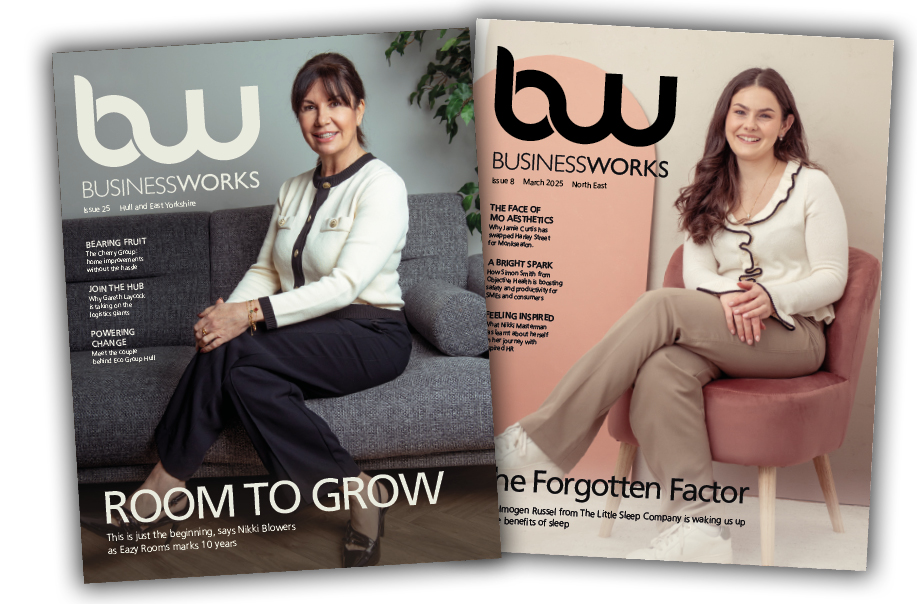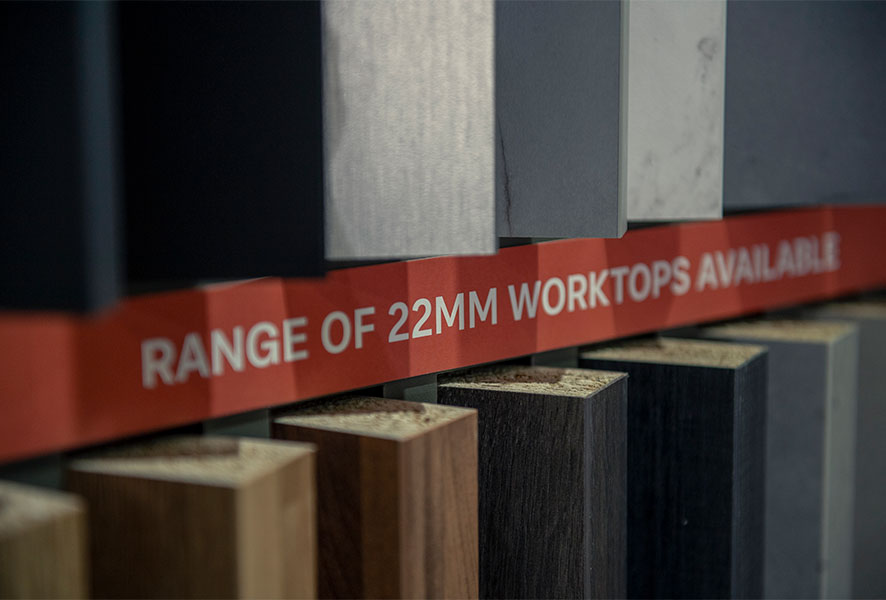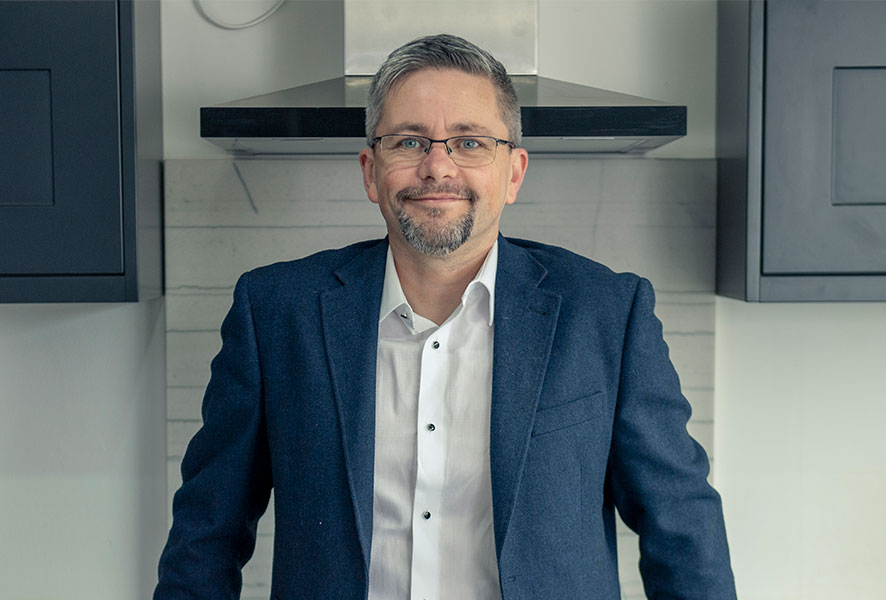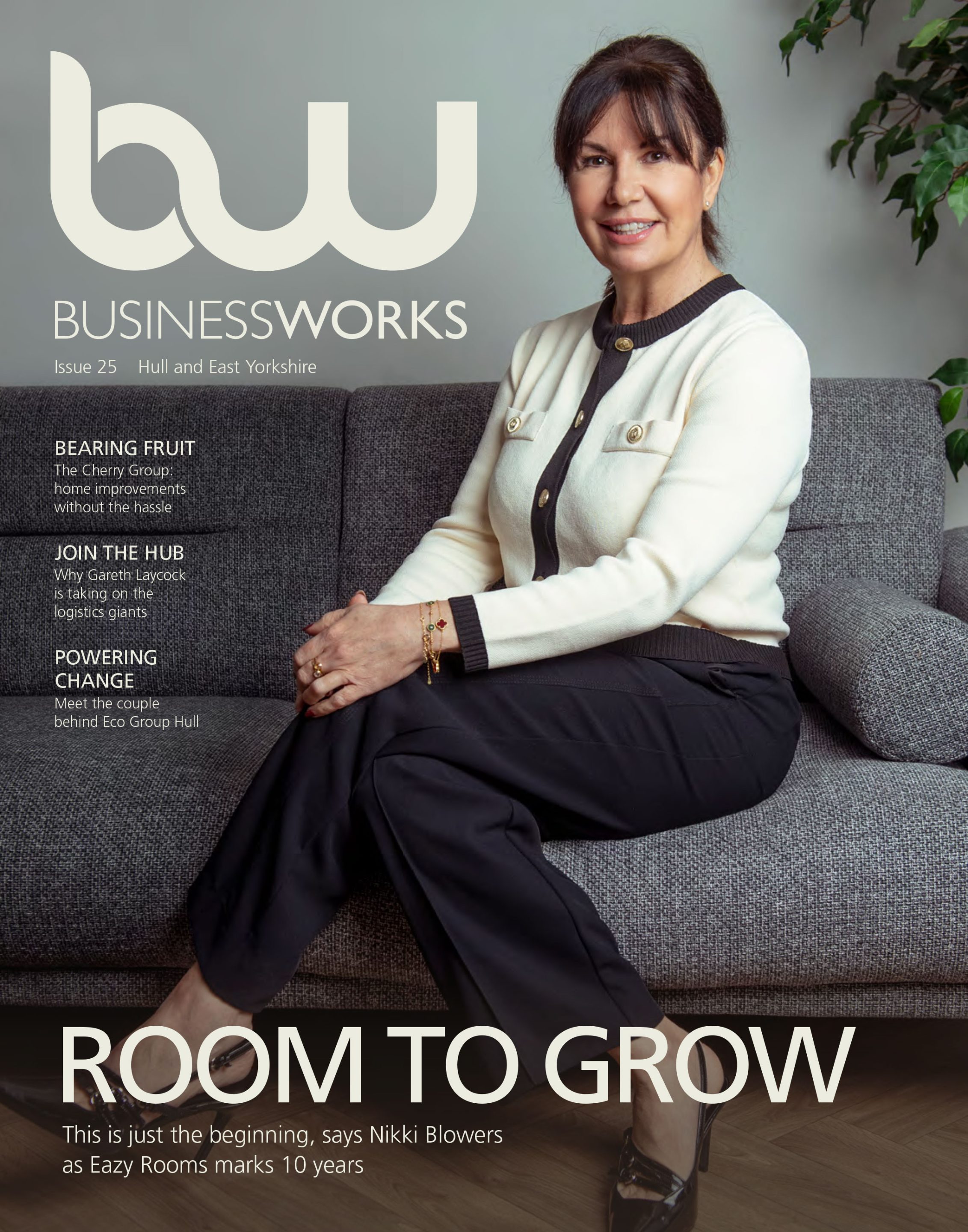Experienced manufacturer Steve McHugh tells Sam Hawcroft how he is moving from the niche to the mainstream with his latest business venture…
Growing up in Sproatley, Steve McHugh’s early ventures in school, selling plants and various bits and pieces, hinted at his entrepreneurial spirit – but with parents who were teachers, a career as an entrepreneur wasn’t a conventional path.
Steve excelled in maths and science, eventually earning a degree in chemical engineering. But his story took many turns before he found his true calling.
After graduating, Steve couldn’t immediately find a job in his field, so he started up a small car valeting business that provided a modest living. Eventually he became a chemical engineer for BP, where he worked for six years. Although he enjoyed the work and the problem-solving aspect, he found the corporate environment stifling. Seeking an exit, he began investing in property, buying and renovating houses. This venture provided him with the financial cushion to leave BP and pursue his dreams.
Steve’s foray into the pet industry first began when his then-wife, who worked for Pets at Home, suggested they buy a pet shop. This was successful at first, but the 2008 recession hit hard. The property market peaked, and Steve sold his properties to start a wholesale company for the reptile industry, carving out a niche manufacturing reptile enclosures and supplying heating and lighting goods. However, the recession brought significant challenges, and Steve faced a tough decision to liquidate the company.
“I was very trusting of people,” he says. “I’d supply them with goods but I didn’t have the paperwork in place for when they didn’t pay, and a lot of these companies went bust. In the end, my accountant said, ‘You need to call it a day.’ I had a real big problem getting my head around letting something go that I’d grown. It was the first thing that I’d really failed in.”
But in another way, it came as a huge relief – and Steve vowed to do things differently from then on. “When I finally liquidated the company, I started up again, but this time no one ever owed me money. Everything was paid up front.”
Steve’s new company, Proviv Vivariums (aka Provivs), thrived, albeit on a smaller scale – but he was forced to adapt yet again when he split from his wife, and was left to raise their two young children alone.
“Eventually I changed from business-to-business to business-to-customer,” he says, “and I started a website which built up enough traffic so that I could stop dealing with trade customers where the margins were smaller, and start dealing with the end-user customers where the margins were bigger. I had to change the way I did business so I could be there more for the kids, so I started packing everything into boxes and sending it out through couriers instead of delivering it myself.”
Steve decided to make Provivs a limited company about six years ago, as it began to grow, and he moved into a large unit on the Chamberlain Business Park where he had space to invest in his own machinery.
“I just looked at what I was doing, and it was building up, I started to run scenarios in my head,” he says. “For example, if one of the boards delaminated, I would have £30,000 of goods that I’d need to replace, and I wouldn’t be able to cover that. I’d be personally liable for it. So I became limited again – I think it was the right choice to make. Obviously there are pros and cons, but it was getting big enough where I needed to reduce that exposure.”
A further hurdle came when the specialist courier company he used, Tuffnells – whose strapline was the Big Green Parcel Machine – collapsed about a year ago.
“That gave me a big headache because my goods are really big and ugly – they actually call it ugly freight!” says Steve. “Some of the packages can be 2.5m by 1m in dimension, very heavy and difficult to process. I then got TNT on board and they were initially quite happy to help me – but they took two loads and said, we’re not doing that again. I found another company but they wanted to charge nearly five times that I was originally paying, so I made the choice to get a van and start delivering everything myself – and that’s come with its own challenges.”
Doing all of his own deliveries does mean he gets to see some “fantastic” places – delivering the vivariums from Cornwall to Scotland and everywhere in between. And, while he has a handful of competitors and acknowledges he may not be the cheapest, Steve prides himself on his extensive experience and reputation for top-quality craftsmanship.
In recent months, however, he has been working on establishing a new venture, East Riding Kitchens, which is a move away from niche and very much into the mainstream. “Not everyone has a reptile – but everyone has a kitchen,” as he points out.
He figured that making kitchen units was not all that different from making reptile enclosures, especially as he has all the specialist equipment he needs at his premises, including a machine that puts edging strips on, which he bought during the pandemic with the help of a bounce-back loan.
“People have always asked me to build kitchens for them, and for the past three years I’ve been toying with the idea, thinking that, as the kids get a bit older and I can free a bit more time up, this is a direction I’d really like to take.”
Steve’s journey into the kitchen business began quite serendipitously. One day, while at his factory, he encountered Chris, a representative from a kitchen door manufacturing company, who was just passing by. Chris mentioned a showroom in Willerby that was up for sale, stocked with new appliances and ready to be taken over. Seizing this opportunity, Steve acquired the showroom, setting the stage for East Riding Kitchens.
The company aims to provide high-quality, affordable kitchens with a focus on customer choice and budget flexibility. Steve’s business model offers a range of options, from basic setups to premium upgrades, allowing customers to build their ideal kitchen without breaking the bank.
Steve’s approach to the kitchen market is innovative and customer-centric. Instead of presenting customers with a single high-priced option, he starts with a basic, affordable setup and offers a range of upgrades. “We hook customers in with a nice-looking but cheaper sort of door, and then offer upgrades for those who want to enhance their kitchen,” he explains. This strategy allows customers to tailor their kitchen to their budget, choosing where to invest in higher-quality materials and finishes.
The business model also addresses the psychological aspects of purchasing. Steve has found that starting with a lower base price and offering incremental upgrades makes customers more comfortable and less likely to be put off by the overall cost. “If you give them an expensive price up front, they might walk away. But if you start with an affordable option and let them choose upgrades, they feel more in control and can build a kitchen that fits their budget,” he says.
With his partner Laura herself adapting from a role in teaching to become “part designer, part project manager”, they have built connections that allow them to offer a full kitchen solution to customers – and Steve points out that renovations and retrofitting are really a false economy; it can end up cheaper and better quality to rip out and install new.
“People are spending £3,000-£4,000 on new kitchen doors alone, when we can fit a new kitchen with brand-new appliances all fitted and exactly how you want it for, say, £7,000. And if you’re not removing your tiles, then the worktops never fit right. So if you replace the tiles, you could be looking at £5,000 – you might as well spend a little extra, get the new carcasses, get the new appliances, and everything else sorted out while you’re at it.”
Steve is also exploring new avenues for innovation, including sustainable materials and eco-friendly design options, and the company sources many of its components locally, ensuring that each kitchen is built to the highest standards. “We believe in supporting local businesses and maintaining strict quality control,” Steve says. The showroom, meanwhile, features fully assembled kitchens, allowing customers to see and feel the quality of the materials and craftsmanship, helping them visualise their future kitchens and make informed decisions.
The kitchen industry, like many others, faces its share of challenges, particularly in the current economic climate. Rising costs and supply chain issues can impact both pricing and availability of materials. However, Steve’s experience in navigating the ups and downs of business has equipped him to handle these challenges with resilience and adaptability.
Steve is also keen on “giving back”, having joined For Entrepreneurs Only, and he also runs the Hedon Hub group on Facebook, which has grown into a hugely popular portal for local businesses.
“I’d really like to contribute, and I think that as I get a bit more time, that’s something I’d really like to do more with,” he says. “Through Hedon Hub I’m trying to help the local community build their businesses and I’d like to run a few workshops on the basics – for instance, I see so many people getting things like Facebook wrong. I’d also like to help people who want to start websites, as I’ve done it all. I’ve been there. I know what the pitfalls are. Building an e-commerce website wouldn’t suit every business, so I can help people find out whether it’s right for them. I think that will all come in the next year or so.”
For now, Provivs is the “bread and butter” business – but, looking ahead, Steve envisions significant growth for East Riding Kitchens. He plans to expand the team, bringing in skilled professionals who share his commitment to quality and customer service. “We have the capacity to produce two or three kitchens a day with the right staff,” he says. “What I love most about both businesses is the problem-solving. Every day is different, and every day brings a new problem. But there is always a solution…”






